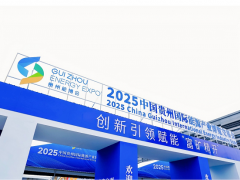據4月22日offshore energy消息:俄羅斯天然氣工業股份公司(Gazprom)計劃擴大氫氣的生產和使用,并正在考慮將氫氣用作能源的幾個領域。
目前,該公司在其設施中通過各種技術生產超過35萬噸的氫氣,然后用于從中獲得不同的產品。
氫能被視為實施低碳發展戰略的關鍵。但是氫氣是二次能源,需要額外的能量來生產,成本很高。目前大多數外國項目都是由國家補貼和救濟資助,目前全球還沒有一個共同的能源氫市場。
俄氣強調,通過利用天然氣的特性,即生態友好和成本效益,積累自己在氫能領域的技術能力非常重要。
該公司的計劃包括在其生產活動中開發利用甲烷-氫燃料的創新技術,以及開發利用甲烷生產氫的創新技術,零排放二氧化碳以及氫運輸方法,尤其是用于出口的排放量。
此類技術的大規模實施是為了增加對天然氣作為制氫原料的需求。
管理委員會被要求為旨在尋求天然氣為基礎的氫能開發優先事項的活動作出規定。
理事會還注意到2020年進口替代工作取得的成果以及取得的運營和財務效果,并批準了關于俄氣進口替代計劃實施進展的報告。
去年,該公司提議擴大北溪1號(Nord Stream 1)天然氣管道,將進口的甲烷轉化為氫氣。該管道是位于德國波羅的海沿岸的一家主要加工廠。
馮娟 摘譯自 offshore energy
原文如下:
Gazprom to continue hydrogen energy development
Russian gas company Gazprom plans to grow its hydrogen production and use and is considering several areas for utilising hydrogen as an energy source.
At the moment, Gazprom produces over 350,000 tonness of hydrogen by various technologies at its facilities, which is then used to derive different products from it.
Hydrogen energy is viewed as essential for the implementation of low-carbon development strategies. However, hydrogen is a secondary energy source, and additional energy is required to produce it, which makes it costly. Most of the current foreign projects are funded by state subsidies and reliefs, and there is no common global market of energy hydrogen today.
Gazprom stresses the importance of accumulating its own technological competencies in the field of hydrogen energy through the use of the properties of natural gas, i.e. eco-friendliness and cost-efficiency.
The company’s plans include the development of innovative technologies for the utilisation of methane-hydrogen fuel in Gazprom’s production activities, as well as the development of innovative technologies for the production of hydrogen from methane with zero СО2 emissions along with hydrogen transportation methods, inter alia, for the purpose of export.
The large-scale implementation of such technologies is to create additional demand for natural gas as a feedstock for hydrogen production.
The management committee was asked to provide for the activities aimed at pursuing priorities in natural gas-based hydrogen energy development.
The board also took note of the results of import substitution efforts made in 2020 and the operational and financial effect achieved, as well as approved the report on Gazprom’s import substitution plan implementation progress.
Last year, Gazprom proposed to expand Nord Stream 1 gas pipeline, a major processing plant on Germany’s Baltic Sea coast, to convert imported methane into hydrogen.
免責聲明:本網轉載自其它媒體的文章,目的在于弘揚石化精神,傳遞更多石化信息,并不代表本網贊同其觀點和對其真實性負責,在此我們謹向原作者和原媒體致以敬意。如果您認為本站文章侵犯了您的版權,請與我們聯系,我們將第一時間刪除。







